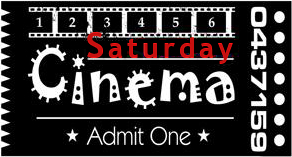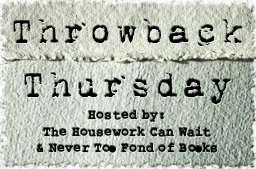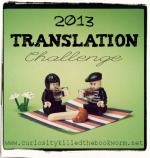Katherine Nabity's Blog, page 232
April 16, 2013
Book 16 ~ Hype & Glory
Filled with gossipy and truly fascinating anecdotes, Hype & Glory is an insider’s look at two of the most popular events in the world–the Cannes Film Festival and the Miss America Pageant. (via Goodreads)
I spent many afternoons in college in the basement of Love Library – North reading from the 791.4 section. Don’t worry, I had to look that up. When I frequented the library, I knew where these books were without paying much attention to their call numbers. 791.4s are the books about public performances, radio, movies and TV. This is where I ran into William Goldman first. I read his scripts and dishy books about the movies before I ever tracked down a copy of The Princess Bride. I’d pull one off the shelves, sit at one of the few tables in Love Library – North’s basement and read until I had somewhere else to be. Ah, the good old days!
The blurb on the front of Hype & Glory reads: “A true account by the only person to have been a judge at both the Cannes Film Festival and the Miss America Pageant–in the same year–and lived to tell about it!” Good marketing because it’s that incongruity that got me. The Frenchness of Cannes; the New Jersey-ness of the Miss America Pageant. All told against Goldman’s divorce and re-insertion into the dating world. The stories are fun, if a little dated. The contests in question occurred in 1988 when $70 million was a huge budget for a motion picture. But it’s a neat behind-the-scenes look and Goldman is a talented storyteller.
Genre: Non-fiction
Why did I choose to read this book? Impulse read. I like Goldman’s stuff.
Did I finish this book? (If not, why?) Yes. Good fast read.
Craft Lessons: Milk-by-the-pickles, maybe I can pick up some of Goldman’s levity.
Format: Hardback
Procurement: PaperbackSwap
Bookmark: For some reason, I ended up using the dust cover. It was sort of like, “I’m just going to dip into this book. I’m not serious enough to get a proper bookmark.”


April 13, 2013
Saturday Cinema ~ The Following & Hannibal (new horror series, pt 1)
Introduction
I watched Hitchcock Wednesday night and got excited about posting about it, and the 1959 Robert Block novel Psycho, for Throwback Thursday. Unfortunately, I’ve posted about Psycho in the past. It was in fact my first Throwback post of last October. I realized that aside from shoe-horning movie talk into book posts I don’t really have a place to muse about movies (and TV) and lately I’ve been doing a lot of musing. So, welcome to Saturday Cinema. It probably won’t be every week, but it probably will be on Saturday.
The Essentials
Within the last three months, three serial killer TV dramas have hit American screens. The Following premiered in late January, followed by Bates Motel in March and Hannibal in early April. I was interested in all three of these, but also apprehensive. Tinkering with beloved characters, even monstrous ones like Hannibal Lecter and Norman Bates, is a dicey proposition. What I didn’t expect was that it wouldn’t be a favored character, but a favored writer that would inflame in me the most ire.
First, a slight digression: I consider myself a pretty flexible Sherlock Holmes fan. Jeremy Brett might be my iconic Holmes, both in terms of the character and Granada’s faithfulness to the stories, but my heart is big enough to include just about any adaptation. As long as what is essential Holmes stays intact. To me, Holmes needs to a genius. He needs to be focused and arrogant. He needs to willing and able to take action. Everything else can be tinkered with. Joan Watson? Why not. Sherlock and John meeting as boys in boarding school? I’m game. Holmes as an addled buffoon? Nope, sorry. Try again.
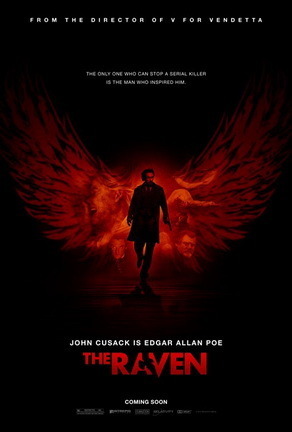 I figured that as long as the storytelling was half decent, I would like The Following. The cast looked good. The notion of the leader of a cult being in jail while his followers wreak havoc was intriguing. That the killer patterned his murders off the works of Poe was…okay, that was the worrying part. I have a very specific notions about Poe. Before The Following premiered, I watched The Raven, starring John Cusak. The story not only features a serial killer copying Poe’s methods, but Poe himself investigating the crimes. I should have loved this film. I didn’t. I didn’t hate it, but it fell very short of what I wanted that movie to be. The Following doesn’t get it right for me either. While only kinda-sorta following some of the crimes in Poe’s stories, the show also purports that Poe is all about the beauty of death, which I don’t agree with. One of Poe’s more prevalent themes is the inevitable decay of beauty. The living thing, even while dying, is beautiful. The dead thing is not. That to me is essential Poe. My ideal Poe movie/TV show would involve intricate and beautiful architecture and machinery (a la “The Masque of the Red Death” and “The Pit and the Pendulum”), would feature against-the-clock mysteries, and would leave characters seeing how much more beautiful life is after facing death. It would seem, actually, that my ideal Poe movie is Saw…
I figured that as long as the storytelling was half decent, I would like The Following. The cast looked good. The notion of the leader of a cult being in jail while his followers wreak havoc was intriguing. That the killer patterned his murders off the works of Poe was…okay, that was the worrying part. I have a very specific notions about Poe. Before The Following premiered, I watched The Raven, starring John Cusak. The story not only features a serial killer copying Poe’s methods, but Poe himself investigating the crimes. I should have loved this film. I didn’t. I didn’t hate it, but it fell very short of what I wanted that movie to be. The Following doesn’t get it right for me either. While only kinda-sorta following some of the crimes in Poe’s stories, the show also purports that Poe is all about the beauty of death, which I don’t agree with. One of Poe’s more prevalent themes is the inevitable decay of beauty. The living thing, even while dying, is beautiful. The dead thing is not. That to me is essential Poe. My ideal Poe movie/TV show would involve intricate and beautiful architecture and machinery (a la “The Masque of the Red Death” and “The Pit and the Pendulum”), would feature against-the-clock mysteries, and would leave characters seeing how much more beautiful life is after facing death. It would seem, actually, that my ideal Poe movie is Saw…
Let’s skip to Thomas Harris and his character, Hannibal Lecter. Hannibal in Red Dragon and The Silence of the Lambs (take your pick between movies and books) is a black box character. What we know about him as readers and viewers is due to his interactions with other characters. We don’t get into Lecter’s head. Thomas Harris opened the black box that is Hannibal Lecter with the novels Hannibal and Hannibal Rising and recieved mixed reviews. Fans wanted to know what makes Hannibal tick, but were a bit edgy when Harris’s vision wasn’t their own. (For the record, I like Hannibal quite a bit, but still haven’t read or watched Hannibal Rising, Lecter’s ultimate origin story written and the fourth book in the series.)
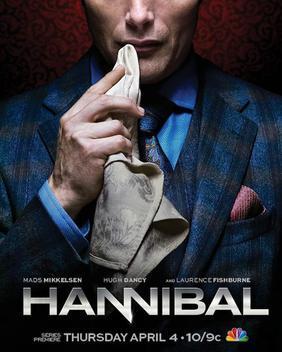 While only two episodes in, Hannibal seems to be playing by the original rules. Hannibal is a force within the series while the main character is Will Graham. I haven’t decided yet if I like this show. The writing strikes me as a bit flat when not being downright heavy-handed. I’m not a fan of Will Graham “on the spectrum.” But I can’t deny that Mads Mikkelsen makes a pretty darn good Hannibal Lecter. The show might have won me over in its second episode when Hannibal muses about whether God feels particularly powerful when he drops church roofs on His worshipers’ heads. That’s pretty much straight from the the book (Red Dragon, I think) and I hope that the TV series is willing to toy with these ideas more than the movies ever did. The essential Lecter may be the character’s ability to hold a mirror up to good people and show them how tarnished they could be. Maybe that’s what the later two books in the series was missing.
While only two episodes in, Hannibal seems to be playing by the original rules. Hannibal is a force within the series while the main character is Will Graham. I haven’t decided yet if I like this show. The writing strikes me as a bit flat when not being downright heavy-handed. I’m not a fan of Will Graham “on the spectrum.” But I can’t deny that Mads Mikkelsen makes a pretty darn good Hannibal Lecter. The show might have won me over in its second episode when Hannibal muses about whether God feels particularly powerful when he drops church roofs on His worshipers’ heads. That’s pretty much straight from the the book (Red Dragon, I think) and I hope that the TV series is willing to toy with these ideas more than the movies ever did. The essential Lecter may be the character’s ability to hold a mirror up to good people and show them how tarnished they could be. Maybe that’s what the later two books in the series was missing.
Next Saturday
I started out meaning to post about Bates Motel and the movie Hitchcock as well, but I think I’ll save those for next week.
If there are any bloggers that would like to join me in talking about movies and TV, I’d consider doing a Linky thing. Drop me a comment. (Also, if there’s an existing blog meme for the weekly discussion of movies that I’ve missed, please let me know.)


April 9, 2013
Book 15 ~ Fooling Houdini
From the back rooms of New York City’s century-old magic societies to cutting-edge psychology labs; three-card monte on Canal Street to glossy Las Vegas casinos; Fooling Houdini recounts Stone’s quest to join the ranks of master magicians. As he navigates this quirky and occasionally hilarious subculture, Stone pulls back the curtain on a community shrouded in secrecy, fueled by obsession and brilliance, and organized around a single overriding need: to prove one’s worth by deceiving others.
But his journey is more than a tale of tricks, gigs, and geeks. In trying to understand how expert magicians manipulate our minds to create their astonishing illusions, Stone uncovers a wealth of insight into human nature and the nature of perception. Every turn leads to questions about how the mind perceives the world and processes everyday experiences. By investigating some of the lesser-known corners of psychology, neuroscience, physics, history, and even crime, all through the lens of trickery and illusion, Fooling Houdini arrives at a host of startling revelations about how the mind works–and why, sometimes, it doesn’t. (via Goodreads)
There are two aspects to this book. One of them worked very well for me, and the other sort of half worked*.
The part that worked: Alex Stone’s story. Stone begins this book with his disastrous competition at the World Championships of Magic. At the beginning of this book he’s a magic aficionado, but not too far beyond hobbyist. He hasn’t taken that full-on plunge into the obsession that is needed to become really, really good at magic. He goes on a journey (both figuratively and physically with many trips to Vegas and back) to learn how to be a better magician. The part of his life that takes a backseat to this obsession is his career as a physicist.
Along the way, he finds that there is a great overlap between the sciences and magic.
For me, this was the part that didn’t work as well, *but I have this intersection of interests that includes hustling and advertising, both of which lead to the same neuroscience concepts that are used by magicians. The “lesser-known corners of psychology, [and] neuroscience” weren’t lesser known to me. (Plus, I have stuff like this in my backyard.) That doesn’t mean that Stone doesn’t do a good job keeping the science accessible. Even knowing what I know, I didn’t skim. On the other hand, the other crunchy bits were pretty cool. I had no idea that three card monte was not only still a thing, but a profitable crime enterprise. One of the last sections deals (ha!) with rising sequences in card shuffling which is the basis for many card tricks (and some card counting) and has served as in important model for randomness. If you can’t tell, I find that exciting and it wasn’t something I didn’t have a good gasp of before reading Finding Houdini.
Genre: Non-fiction (I seem to be on a non-fiction kick. Two more reviews of non-fiction books are on the way.)
Why did I choose to read this book? I’m reading a lot about magic.
Did I finish this book? (If not, why?) Yes.
Craft Lessons: Narrative still belongs in non-fiction.
Format: Kindle ebook
Procurement: Greater Phoenix Digital Library


April 4, 2013
Throwback Thursday ~ The Silent Gondoliers
Throwback Thursday is a weekly meme hosted by The Housework Can Wait and Never Too Fond of Books!
Noting that book blogging often focuses on new releases, here’s how Throwback Thursday works:
Pick any bookish or literary-related media (or non-media item) released more than 5 years ago.
Write up a short summary of the book (include the title, author, and cover art) and an explanation of why you love it.
Link up your post at The Housework Can Wait or Never Too Fond of Books.
Visit as many blogs as you can, reminisce about books you loved, and discover some “new” books for your TBR list!
The Silent Gondoliers by S. Morgenstern (with some contribution by some guy named William Goldman)
Once upon a time, the gondoliers of Venice possessed the finest voices in all the world. But, alas, few remember those days–and fewer still were ever blessed to hear such glorious singing. No one since has discovered the secret behind the sudden silence of the golden-voiced gondoliers. No one, it seems, but S. Morgenstern. Now Morgenstern recounts the sad and noble story of the ambitions, frustrations, and eventual triumph of Luigi, the gondolier with the goony smile.
Here, in this brilliantly illustrated exposition of the surprising facts behind this all-but-forgotten mystery, S. Morgenstern reveals the fascinating truths about John the Bastard, Laura Lorenzini, the centenarian Cristaldi the Pickle, Enrico Caruso, Porky XII, the Great Sorrento, the Queen of Corsica–and of course, the one and only Luigi. His tale will captivate you as much as his song! (via Goodreads)
S. Morgenstern is the kinda-sorta pen name that William Goldman uses to write the good stuff. You know, like, The Princess Bride? This volume is much slimmer and fast if you’re looking for something great to read during read-a-thon season. ;)


April 2, 2013
Book 14 ~ Take Me Home from the Oscars
Driven to deceit by a career that celebrates beauty and fashion, lifestyle reporter Christine Schwab is not most people. She managed to keep her illness a secret for years, even as a recurring guest on Live with Regis & Kelly, Oprah!, The Today Show, Entertainment Tonight, and elsewhere. She juggled her career with a thrilling personal life in Hollywood: married to Shelly Schwab, then the president of television distribution at Universal Studios, she traveled, dined with celebrities, and met presidents of the United States. How could she allow a devastating disease associated with aging and disfigurement to take over her life?
Rather than let it, she hid it—a skill learned well in childhood. In Take Me Home from the Oscars, Schwab openly speaks of her arthritis for the first time, looking to her past for clues of how she managed the deception, but also of lessons learned when she could no longer hide. Schwab’s voice is at once smart and friendly. The reader will root for her at every step, and cheer when, through medication, she ultimately finds remission. (via Goodreads)
I purchased this book thinking it would be the memoir of someone fashionable, living a glittery Hollywood lifestyle, who also has RA. The title refers to leaving the Oscars (the Oscars!) due to a particularly nasty flare-up. I wanted to be heartened by the story of someone living with this disease rather than someone suffering from it. That’s a distinction that is sometimes very fuzzy, but the distinction generally keeps me off of RA forums. Unfortunately, this book is very much about suffering. For the better part of twenty years, not only was Schwab feeling the physical symptoms, but also adding a walloping dose of guilt due to her deceptions.
Schwab’s memoir is incredibly repetitive. Every chapter, except perhaps the last one, contains a version of the following: I have this painful, crippling disease that’s associated with twisted, old people and if anyone finds out that I’m not perfect, I’m never ever going to work again, so I need to lie about it. It’s hard to say how justified the paranoia is. This is Hollywood after all, but some of her attitude might stem from the abandonment that Schwab feels has dogged her all her life. While the book is sprinkled with memories of her childhood, there isn’t really a resolution that pulls this story together. It didn’t seem like Schwab came to some peace about her condition. Instead it feels like since she’s now in remission and older, she can move from fashion maven to fashion maven *and* a face (but not hands) of rheumatoid arthritis. If this had been a tight 20K article, it probably would have had more impact. A better title might have been “Arthritis and Lies.”
I really can’t begrudge Christine Schwab her need to hide her illness, but there is one aspect to her narrative that made me wince. In her desperation to make it all go away, she was pretty cavalier with her medical treatments. She states several times that she didn’t want to know what the side effects of medications were. Even after having a very serious lung infection set off by one medication, she was still somewhat willfully ignorant. That really bugged me.
Genre: Non-fiction, memoir.
Why did I choose to read this book? I want to read stories of people living with this disease, but not suffering from it.
Did I finish this book? (If not, why?) I did, though I considered setting it aside a few times.
Craft Lessons: Get in, make your point, get out.
Format: Hardback.
Procurement: Amazon third party seller.
Bookmark: Bookmark made from a birthday card Tania sent me.


April 1, 2013
What Else in March
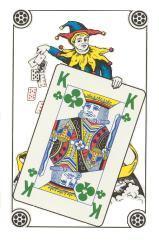 Writing Work
Writing WorkFinished up a block of research for One Ahead. I solidified some family details and now I’ve been going through PDFs of The Omaha World-Herald for color details. Also finished reading Abbott’s Behind the Scenes with the Mediums and a few other articles he had published during his lifetime. Actually, started to feel somewhat depressed toward the end of this research block. All these people I’m reading about, that I’m becoming invested in, are all real people and they’re all dead.
Made progress on the 2nd draft.
Query-wise:
# of submissions for Luck for Hire: 8
# of responses: 8 (two were “assumed” rejections from agents who do not respond if not interested)
Other Life Stuff
If February was busy, March was the opposite. And not unhappily so. March felt like a recovery month.
I’ve been trying to get some extra exercise in addition to playing disc twice a week. I think I managed to hit the community center every week this month. I’ve been doing intervals of the rowing machine. Seems to be doing okay for my knees and my hands have been putting up with it. Now, if I would just quite snacking…
Still, there’s about one day a week when I feel really crummy. I’ve been trying to curtail my alcohol and caffeine intake after a certain time at night in order to sleep better. I’m not sure it’s helping, but I need to stick with it longer.
Books Obtained

From Amazon:
A Dirty, Wicked Town: Tales of 19th Century Omaha by David L. Bristow
Take Me Home From the Oscars by Christine Schwab
From Paperbackswap:
Hype & Glory by William Goldman
The Magician by Sol Stein
Winnigs:
The Last Greatest Magician in the World by Jim Steinmeyer (from the Take Control RAT raffle, thanks Kimba!)
Other Stuff Read
Finally got around to reading some of the Nebula nominated short stories. A good crop thus far. I’ll have a run down of them later. There are some great stories by Neil Gaiman, Rachel Swirsky, and Kij Johnson out there on the web too. Check ‘em out.
Other Books I Want to Read
At Goodreads:
Grand Deception The World’s Most Spectacular and Successful Hoaxes, Impostures, Ruses, and Frauds by Alexander Klein
Eyeing the Flash: The Making of a Carnival Con Artist by Peter Fenton
At the Greater Phoenix Digital Library:
The Inventor and the Tycoon: A Gilded Age Murder and the Birth of Moving Pictures by Edward Ball
Magic: The Complete Course by Joshua Jay
Houdini’s Paper Magic: The Whole Art of Paper Tricks, Including Paper Folding, Paper Tearing, and Paper Puzzles by Harry Houdini
Mockingbird by Chuck Wendig
Charlotte Markham and the House of Darkling by Michael Boccacino
Bad Glass by Richard E. Gropp
Poe’s Children, The New Horror: An Anthology edited by Peter Straub
The Prince of Mist by Carlos Ruiz Zafon
Fear of Flying by Erica Jong


March 29, 2013
Easter Read-a-thon

Hosted by Kate @ Nose in Book
Apparently, I just can’t resist a readathon. I’m also pretty bummed that I’ll be missing Dewey’s 24-hour readathon for the second time in a row. (My participation last spring was on the low side as well…) I’ve been making up for it ever since. ;)
Goals
I’m going to keep it modest: 300 pages.

I have two books out from the library (Make that three. What’s the law that says that books on hold will all become available at the same time?):
Fooling Houdini by Alex Stone (starting at 82%)
Scoundrels by Timothy Zahn
The Way of the Wizard edited by John Joseph Adams
And I still have my weekly reading to do:
Two chapters of A Storm of Swords, a poem, a section of Prose Edda, and I should probably get another Nebula short story nomination read.
Progress


March 28, 2013
Throwback Thursday ~ No Country for Old Men
Throwback Thursday is a weekly meme hosted by The Housework Can Wait and Never Too Fond of Books!
Noting that book blogging often focuses on new releases, here’s how Throwback Thursday works:
Pick any bookish or literary-related media (or non-media item) released more than 5 years ago.
Write up a short summary of the book (include the title, author, and cover art) and an explanation of why you love it.
Link up your post at The Housework Can Wait or Never Too Fond of Books.
Visit as many blogs as you can, reminisce about books you loved, and discover some “new” books for your TBR list!
No Country for Old Men by Cormac McCarthy
One day, a good old boy named Llewellyn Moss finds a pickup truck surrounded by a bodyguard of dead men. A load of heroin and two million dollars in cash are still in the back. When Moss takes the money, he sets off a chain reaction of catastrophic violence that not even the law–in the person of aging, disillusioned Sheriff Bell–can contain.
As Moss tries to evade his pursuers–in particular a mysterious mastermind who flips coins for human lives–McCarthy simultaneously strips down the American crime novel and broadens its concerns to encompass themes as ancient as the Bible and as bloodily contemporary as this morning’s headlines. (via Goodreads)
I have a love-hate relationship with both Cormac McCarthy (author of this book) and the Coen brothers who co-wrote and directed the 2007 movie. As I originally wrote:
The first time I encountered Cormac McCarthy was online, in an excerpt from one of his books. WTF, I thought. Not only does this guy not use dialogue tags, he doesn’t use dialogue punctuation. As a writer it’s the kind of thing that makes me scowl. How come this guy gets away with playing fast and loose with his punctuation while I’d probably get dismissed out of hand by sending in a writing submission that way? The lack of punctuation seems to bother no one but me, so maybe I’m labeling myself as an unsophisticated n00b by complaining about it. *shrug* What have you. Nonetheless, it took me while to decide to read McCarthy’s stuff.
I was very impressed by the movie No Country for Old Men and I got curious about how McCarthy wrote it. And how the lack of dialogue punctuation affects how the reader experiences the text. McCarthy’s writing is very clean. His sentences are structured simply and his details are only in evidence when they’re needed. When he spends a few paragraphs on Moss’s guns, it’s to convey the expertise of the character. Clean writing is something I envy. Most of the time, McCarthy proves that dialogue tags are the safety nets of authors that…well…need safety nets. Myself included. I’ve tried to cut back on the number of tags I use. Really, I have! But there are times when a nice “he said” would have come in handy. The punctuation… As a fairly aural reader, it removed any special emphasis I might give to what was being said by characters. Whether that’s the intent and whether it’s a similar experience for other readers, I don’t know. I was occasionally confused by the lack and that bugged me. I’m from the transparent writing school of thought. I don’t believe the text itself should get in the way of the storytelling. There are exceptions and there are techniques of using the text to make the reader slow down and contemplate what’s going on, but I’d say the times when I had to reread a passage it was for clarity’s sake. It wasn’t to have McCarthy reiterate something important.
On the whole, begrudgingly I admit, this is a very good book. It’s certainly the best I’ve read this year, thus far. I’ll be reading The Road sometime in the near future.
My opinion of The Road was pretty much the exact opposite of my opinion of No Country for Old Men. Likewise, the movie is one of my favorites, but I’m not much of a fan of many other Coen brothers’ movies. Their sense of humor and mine don’t jive. I’d say that the movie wins by combining great performances, understated direction, good writing, and spectacular cinematography. It’s a modern day Western and, if McCarthy is to be believed, we live in a very bleak world. It’s not a shiny-happy movie or novel, but the characters are survivors.


March 27, 2013
Mount TBR Checkpoint #1
If my progress was a mountain, it would be:
Hayden Butte

Yep, not a mountain at all, but a substantial hill. It’s a nice 1/3 mile hike if you’re near downtown Tempe and out of things to do, but it’s not really mountain climbing. Thus far, my Mount TBR progress had been on the hilly side as well. I’ve read 14 books thus far this year, but only two of them have been off my shelves.
A couple weekends ago I joined the Take Control read-a-thon and zipped through two translated works that I’ve owned for…a while. At least five years I’d say. I actually did start reading Leonardo’s Hands by Alois Hotschnig, which I had only owned for a year, but it just wasn’t working out for me. Instead I read Hitchhiking by Gabriele Eckart and Misreadings by Umberto Eco. Both were okay, but not great. I just posted reviews of both yesterday.
I have a lot of mountain left to read.


March 26, 2013
Book 12 & 13 ~ Hitchhiking & Misreadings
First published in East Germany in 1982 and in West Germany four years later, this collection of short prose firmly established Gabriele Eckart in German literary circles (her poetry had earlier won the critics’ praise). Eckart’s stories offer a panorama of East German life: sharply drawn vignettes in which “the familiar, the all-too-familiar, takes place alongside the surprising and the bizarre. . . . Authentic sketches with delicate strokes, concise, to the point.”—(Aschaffenburg) Main-Echo. Although East Germany disappeared from the map in 1990, the experiences of the people who endured, evaded, challenged, and thwarted the socialist regime will long affect a reunified Germany. These stories are powerful and moving reminders of what conditions were like not so long ago. (via Goodreads)
Sketches is a precisely the word for this collection. That’s not a bad thing because they definitely evoke a specific time and place, but for the most part they’re not full stories. There is a certain amount of bleakness to these stories. I loved “The Tall Girl,” but the ending is just…bam, done, no happy ending in East Germany.
Genre: Short fiction with a little autobiographical fiction thrown in.
Why did I choose to read this book? I wanted to read some German fiction.
Did I finish this book? (If not, why?) Yes!
Craft Lessons: One difficult thing about translations is that it’s hard to take away sentence level craft lessons. In this case, there’s not too much to learn structurally either.
Format: Paperback
Procurement: I think I picked up this book at a library sale. Maybe. Quite a while in the past.
Bookmark: Business card from Mercurial Musings
Misreadings by Umberto Eco
Satirical essays in which Eco pokes fun at the oversophisticated, the overacademic, and the overintellectual and makes penetrating comments about our modern mass culture and the elitist avant-garde. “A scintillating collection of writings” (Los Angeles Times). Translated by William Weaver. (via Goodreads)
These essays were originally published in the 1960s in Italy. As Eco notes in the preface, some changes during translation had to be made to make this collection understandable to an American audience, but there is definitely something lost between two continents and 50 years. Some of these essays, like “Granita” and “The Things” were pretty funny. “Regretfully, We Are Returning Your…” is pretty much every writer’s cringe-worthy nightmare as famous manuscripts are turned down by publishers for inane reasons. The second half of this collection really drug for me. I felt I didn’t know enough about the politics, literary and governmental, to really get the jokes. That’s always a barrier with satire.
Genre: Satire. What is satire? Fiction? Non-fiction? I’ve never thought about it before.
Why did I choose to read this book? I like Umberto Eco.
Did I finish this book? (If not, why?) Eh…I skimmed toward the end.
Craft Lessons: Watch your in-jokes. In fiction, if the joke is dependent on a certain time or place, it might be funny to a later audience.
Format: Paperback
Procurement: I swear I bought this at UNL’s bookstore, but it has a half-price mark on the inside.
Bookmark: The same Mercurial Musings card.
Both work for the following challenges:




